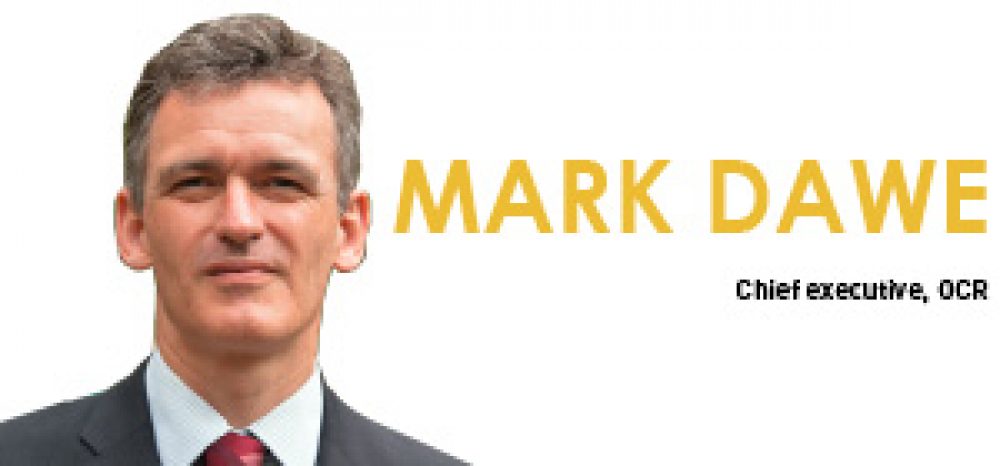Exam time is looming. As the weeks of revision draw to an end, thousands of students will soon be sitting in rows in large exam rooms, ready to pick up their pens and to turn over their papers. “You may begin!”
It’s 2015. How much longer can pen and paper exams be the only medium we use to test young people? I don’t want to alarm students taking OCR GCSEs or A Levels on 11 May – they will not be asked to use Google – but exams do need to change to complement how education works in the 21st century and the skills that we increasingly expect young people to develop.
Young people grow up using technology to learn yet the format of GCSE and A Level examinations is increasingly disconnected to the variety of learning that goes on. Learning and the assessment of learning is becoming disjointed.
So the use of internet search engines such as Google in exams is, for me, a no brainer.
What are exams for? They are not about regurgitating facts. As well as assessing core knowledge of a subject, they are – and should be – about much more than that. We are interested in assessing a young person’s ability to interpret and analyse information, to assess their ability to apply their understanding. Researching on the internet is a key skill in its own right that young people should develop. We do it all the time in our work. (Don’t you want the experienced consultant who is treating you to keep abreast of the latest research on the internet in their field?) Skills of judgment, problem solving and decision making are also important qualities that young people need to develop to flourish and succeed. All these are skills that employers expect to see in the workplace all the time. Exams have to be much more than a memory test.
So the use of internet search engines such as Google in exams is, for me, a no brainer. I am not talking about giving students marks for finding the answer to a simple factual question using Google on a tablet during an exam. Those aren’t the skills I am talking about and access to the internet would not be appropriate for all exams. I am talking about asking students in a GCSE Geography exam for example to write a report about a third world country’s economic development and to use the internet to select appropriate resource materials. Students taking an exam paper on say 200 years of European History might be asked to comment on a new development just outside the period of their study – say voting to leave the EU – and use Google search to research the details, and compare it to a topic they have learnt.
The move to internet access needs to be discussed by all parties and carefully piloted.
In Maths, we already allow calculators in exams because we are assume students have basic knowledge and we want to see if they can apply that. In some situations in maths, such as simulations with large amounts of data or modelling, it is not possible to engage with a realistic model on pen and paper and in the time of a traditional exam. Offloading the processing part on a computer in an exam would allow students to tackle these questions and perhaps to identify a technique that they didn’t even know before they went into the exam room.
As an exam board, we already use technology extensively to support assessment. We scan the papers that students take and then mark them online. We develop resources that relate to our qualifications such as MOOCs, but we don’t fully incorporate the technology of the modern world into GCSE or A Level exams themselves.
Change won’t be easy. There needs to be industry wide agreement on the relaxation of restrictions. The move to internet access needs to be discussed by all parties and carefully piloted. To enable schools to put large cohorts of students into exams with access to the internet, the principle of a staggered timetable of testing would have to be introduced. And an exam with the internet should not benefit the fastest touch typist. But the appropriate and skilled use of the internet is what real education is about and we need to make sure that assessment is not in a world of its own.







Your thoughts